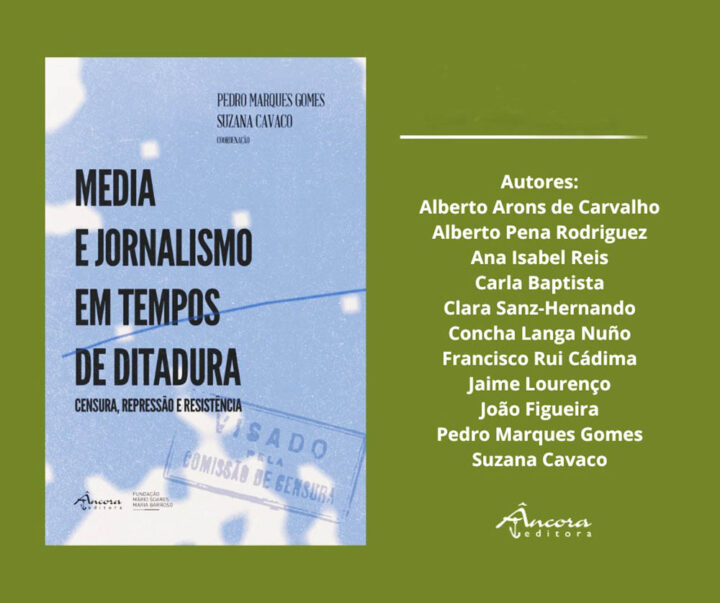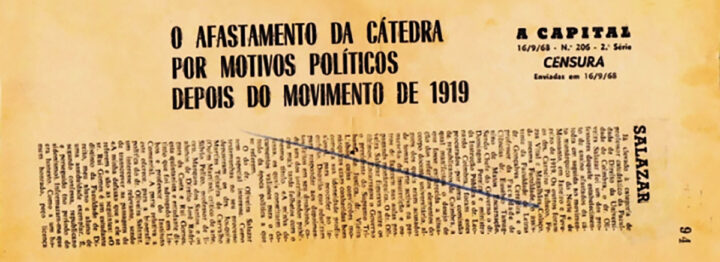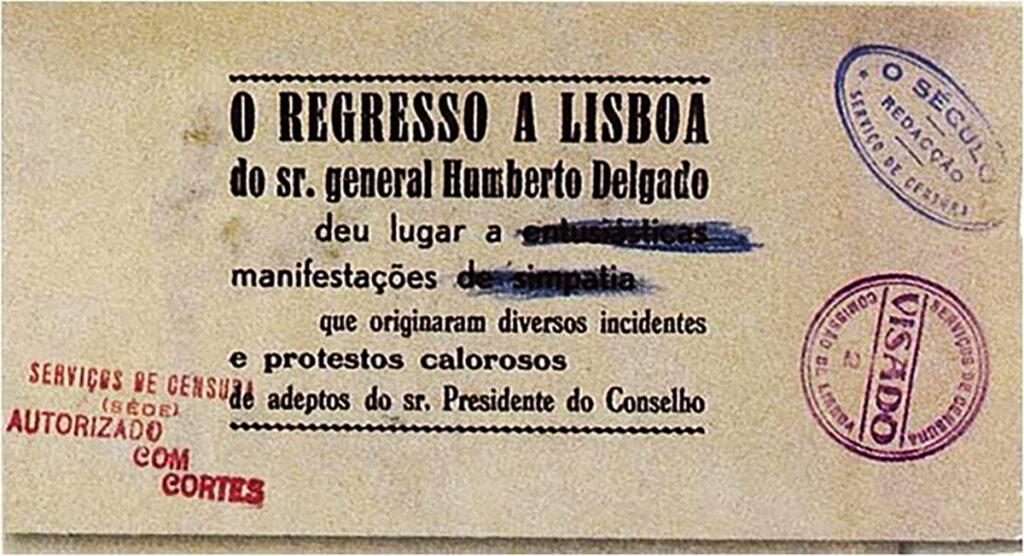Censorship in dictatorships is condemned because it is impossible to hide uncomfortable or inconvenient truths “forever”, according to the book “Media and Journalism in Times of Dictatorship”.
The conclusion comes from the two coordinators of the work – Pedro Marques Gomes and Suzana Cavaco – in the book that brings together essays by researchers from Portugal and Spain on the phenomenon of censorship in the two countries, which lived under dictatorship in the second half of the 20th century.
The common denominator of the studies, write the two organizers, points to the “need that dictatorships have to prevent people from accessing uncomfortable and inconvenient truth” and thus “certain people, subjects and facts were silenced, while emphasis was placed on others".
In conclusion, whether they are “'rational truths' or 'de facto truths'”, quoting Hanna Arendt, dictatorships “will not be able to hide or replace [the information] forever” or “at least, not so much as much as they would like.”

“Media and Journalism in Times of Dictatorship – Censorship, Repression and Resistance” is published by Âncora Editores in partnership with the Mário Soares Foundation, and deals with forms of censorship during dictatorships in Portugal and Spain, using essays by 11 researchers from two countries.
Over 260 pages, the book has texts by Alberto Arons de Carvalho, about previous censorship during the Salazar dictatorship, censorship and propaganda in RTP during the Estado Novo, by Francisco Rui Cádima, or even by journalist Carla Baptista, about the history of the BAC (Anticolonial Bulletin), published in 1972 and 1973, still during the dictatorship.
Concha Langa Nuño writes about Spain, about the persecution of journalists against journalists during the years of Francoism, and Clara Sanz-Hernando, about the weekly 'La Hoja del Lunes de Badajoz', founded in 1924 and had its “maximum heyday” during the Franco regime.
The work is coordinated by Pedro Marques Gomes, professor at the Escola Superior de Comunicação Social, in Lisbon, and researcher at the Mário Soares Foundation, and Susana Cavaco, professor at the Faculty of Economics of the University of Porto and coordinator of the History of Social Communication working group of the Portuguese Association of Communication Sciences.
The presentation of the book is scheduled for tomorrow, Monday, at 19pm, at the São Jorge cinema, in Lisbon, by historian Irene Pimentel and journalist Carlos Albino (ex-DN), and is part of the pre-programming of the 00th journalists' congress, which takes place between January 5th and 18th.




















Comments